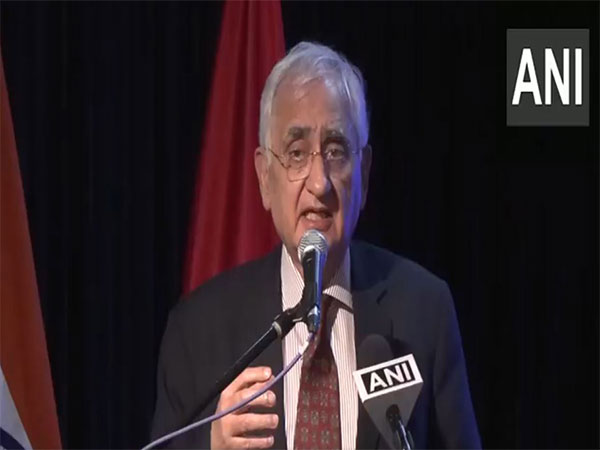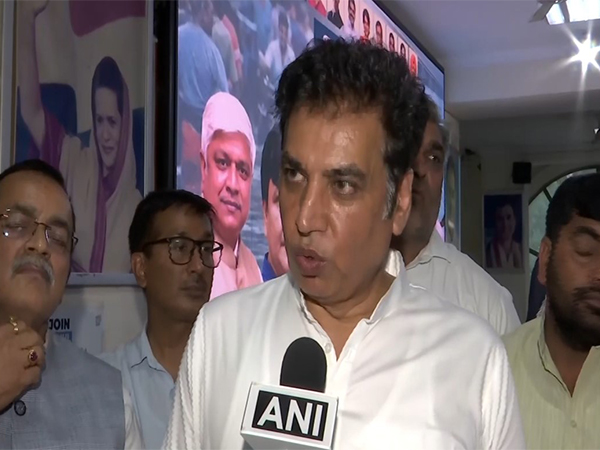
White House vows Supreme Court fight over Trump tariff ruling
May 29, 2025
By Reena Bhardwaj
Washington, DC [US], May 30 : The Trump administration has threatened to escalate its tariffs dispute to the Supreme Court after a court ruling overturned many of the president's new import duties. The administration is demanding that the decision be suspended
White House Press Secretary Karine Leavitt declared, "We will win this battle in court", in a press briefing and said the administration is working to "tackle rogue judges."
When asked why other countries would continue trade negotiations amid the legal uncertainty, she said the U.S. trade ambassador had heard from countries that morning confirming their intention to continue working with the United States.
During a Thursday briefing, Leavitt also informed reporters that U.S. President Donald Trump and Japanese Prime Minister Shigeru Ishiba spoke by phone on Thursday, exchanging views on tariff-related issues.
The press secretary added that members of the president's cabinet--Secretary Lutnick, Secretary Bessent, and Ambassador Jamieson Greer--have been in contact with their counterparts worldwide to signal that the United States remains committed to negotiations.
"Countries around the world have faith in the negotiator in chief, President Donald J. Trump. And they also probably see how ridiculous this ruling is, and they understand the administration is going to win," Leavitt said. "And we intend to win. We already filed an emergency appeal, and we expect to fight this battle all the way to the Supreme Court," the press secretary asserted.
White House lawyers petitioned the Court of Appeals for the Federal Circuit on Thursday to halt Wednesday's decision from taking effect. The move followed a second court ruling that found President Trump had exceeded his authority in implementing the tariffs.
The rulings represent significant victories for small businesses and states that have mounted legal challenges to the measures, striking at policies central to Trump's economic and foreign policy agenda.
Leavitt also criticised the court's tariff ruling as an example of "judicial overreach." She argued that Trump's tariffs were introduced to address U.S. trade deficits with other nations and described the taxes as "legally sound" and "long overdue."
past."
Meanwhile, a US team is scheduled to visit India on June 5-6 for the next round of negotiations on a Bilateral Trade Agreement (BTA) between the two countries.
The India-US trade deal would mark a significant milestone in economic relations between the two big economies, potentially opening new avenues for bilateral commerce and investment.
Additionally, Ray Vickery, Former United States Assistant Secretary of Commerce for Trade Development, said that the trade agreement between India and the US can't happen with Washington's "bullying approach."
"In Trump, 1.0, there was a negotiation that came close to getting a freer trade, not a free trade arrangement between the United States and India. One hopes that that would happen, but it's not going to happen with this bullying approach, which the Trump administration has indicated," Ray Vickery told ANI.
President Donald Trump has made repeated claims that the US mediated the cessation of hostilities between India and Pakistan and offered them "a lot of trade."
However, India has emphasised that the two nations' militaries negotiated directly and resolved the conflict through an agreement and understanding for a cessation of fire and military action.
The cessation of hostilities was agreed upon following a call from Pakistan's Director General of Military Operations (DGMO) to his Indian counterpart, Lieutenant General Rajiv Ghai, after India destroyed nine terror infrastructure sites in Pakistan and Pakistan occupied Jammu and Kashmir under Operation Sindoor.
Additionally, Vikrey said that the Trump administration has a "misunderstanding" regarding trade deficits, due to whichthe US is determined to impose tariffs on other countries.
"The Trump administration has a misunderstanding in regard to trade deficits. Trade deficits are not necessarily something imposed just by unfair trade practices by another country, but they have to do with the United States' own saving and spending habits, he said.


























